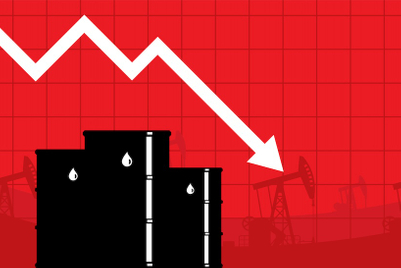
France has become the first European country to ban fossil fuel ads, after a new law was introduced yesterday (22 August).
Now, supermarkets – such as French chain Leclerc – cannot advertise cheap petrol, while ads for natural gas will be banned from the beginning of next year.
The impact of the ban is yet to be felt, but Harriet Kingaby, founder of Conscious Advertising Network, said she believed it is "going to make a difference".
Kingaby continued: "High carbon companies use advertising to mislead a number of different stakeholders.
"They use it to mislead policymakers in that their technologies are cleaner than they actually are, or that there is a need for more investment in fossil fuels.”
Kingaby compared fossil fuel advertising to cigarette ads, saying they were, and are, “harmful for human health”.
While France is the first country to introduce a ban, similar action has been taken on a regional scale in other territories.
Elsewhere in Europe, Dutch capital Amsterdam has banned ads for fossil fuels, air travel, and foreign holidays. Casting the net wider, the city of Sydney, Australia, also recently voted to ban fossil fuel advertising.
In the UK, individual councils are taking action.
Liverpool City and North Somerset Councils have both passed a motion to introduce a low-carbon advertising policy, and Norwich City Council has also voted to limit advertising of environmentally damaging products.
The UK government is yet to pass a similar bill but Ben Essen, global chief strategy officer at Iris, predicted there there will be "more and more public expectation of intervention and action".
He said: “At some point, we'll look back with disbelief that we got this far, in the same way that we look back on cigarette advertising now and go ‘Oh my God, I can't believe we used to do that’.”
He added that, to him, advertising is an ecosystem composed of government regulators, broadcasters, agencies and advertisers.
In this instance, he argued that it is the job of UK advertisers to take the signal from government regulators.
“Our job as the industry is to take that signal and use it to drive innovation within what we do, and work to only be producing and building brands that are consistent with a net zero future.”
According to an article in The Times, the ban introduced in France does not go as far as the initial proposal, which was put forward in 2019 and sought to outlaw any form of advertising by oil companies.
Under the new measures, advertising with renewable energy content, or that adheres to certain criteria, as well as sponsorships are not included in the ban.
If the UK government were to follow suit with a similar ban, Kingaby said she would like to see firm criteria to which advertisers would have to adhere in order to keep advertising.
She added: “If advertising is allowed that has a renewable energy component, for example, I want to see criteria that talks about the amount of core business those companies are investing in a net zero transition to be able to [advertise].”
In Kingaby's view, sponsorships by fossil fuel companies should also be included in the ban. She added that the government should be wary of false solutions such as carbon capture, which has failed at test stage across multiple markets.





.jpg&h=334&w=500&q=100&v=20250320&c=1)

.jpg&h=334&w=500&q=100&v=20250320&c=1)
.jpg&h=334&w=500&q=100&v=20250320&c=1)

.jpg&h=334&w=500&q=100&v=20250320&c=1)
.png&h=334&w=500&q=100&v=20250320&c=1)



.jpg&h=268&w=401&q=100&v=20250320&c=1)



